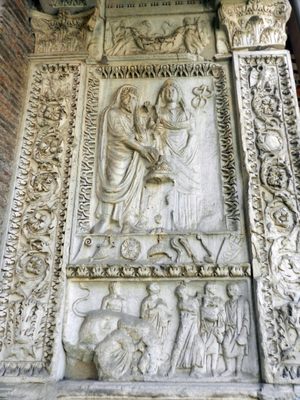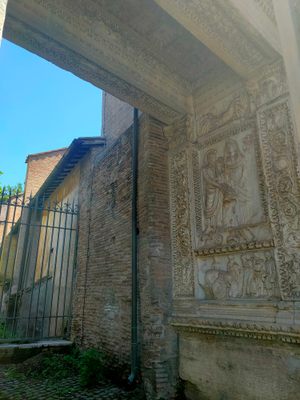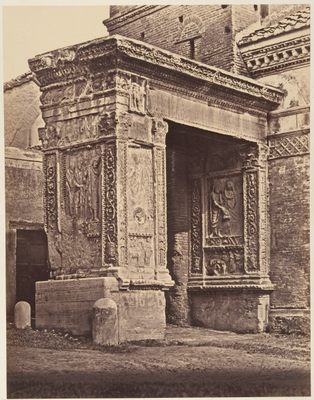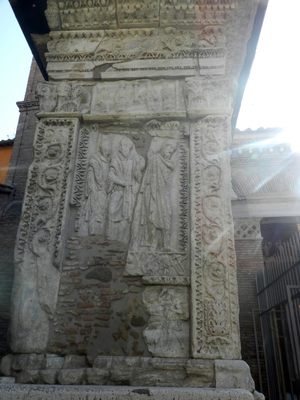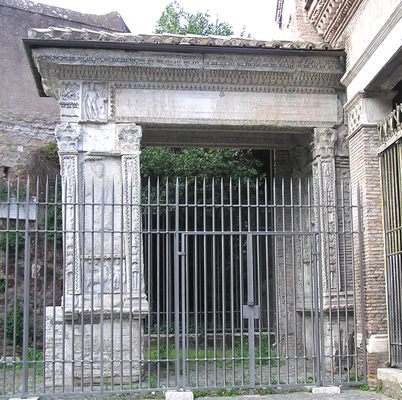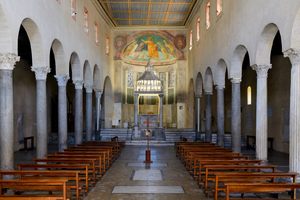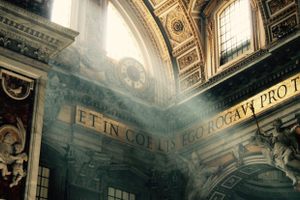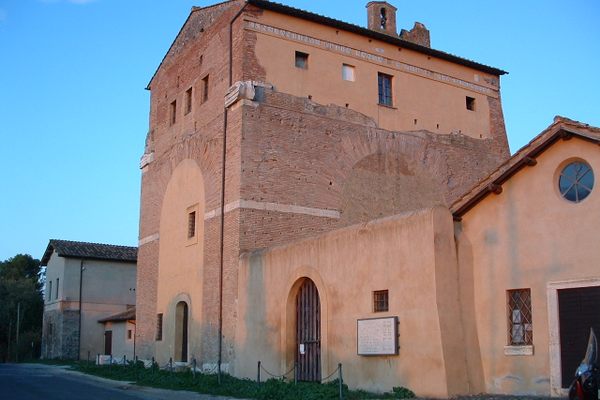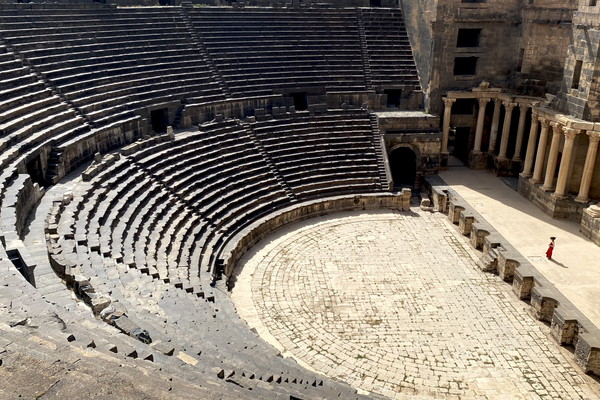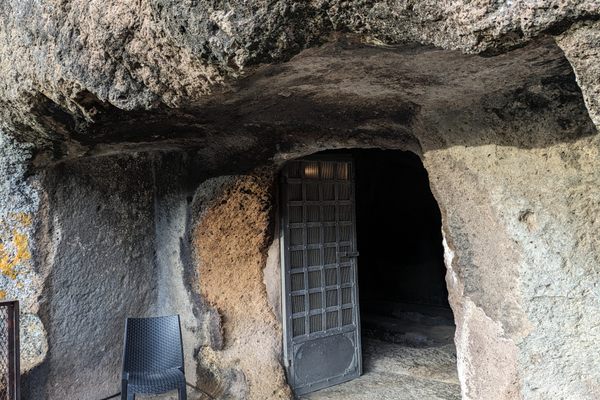About
This marble arch, oddly set against the western wall of the seventh-century Church of San Giorgio al Velabro, was commissioned by the argentarii (money-changers) in honor of Emperor Septimius Severus and his family in 204. Its main iconography shows scenes of the imperial family offering ritual sacrifices.
Caracalla, Septimus Severus's oldest son, is depicted on the arch, along with his brother Geta, his own wife Fulvia Plautilla, and her father Plautianus (Caracalla had Geta killed after Septimus Severus died). The emperor had the depictions of his family vandalized in a sort of damnatio memoriae by which all official images of those condemned for treason would have to be removed from public monuments.
The intriguing legacy of the arch lived on when it drew hopeful treasure hunters to its own misleading clues. An old Roman saying states: "tra la vacca e il toro troverai un gran tesoro" ("between the cow and the bull you shall find a great treasure"). This was interpreted as a direct reference to the sacrificial animals depicted on the arch, and it motivated generations of treasure hunters and pseudo-archaeologists to explore the arch and its surroundings, leaving traces of holes on the arch itself and stories of endless cavities and tunnels under the church.
Two of these stories are of particular interest. One recounts of the tale of how a woman and her child were suddenly swallowed up by the Earth as they were walking past the church in 1601, while another, dating to a century earlier, tells of a mysterious northerner who arrived in Rome with a book with detailed notes on the treasure's precise location. He asked Pope Sixtus IV for permission to excavate and explore the site, and upon entering the arch through a small opening, he disappeared, never to return.
Related Tags
Flavors of Italy: Roman Carbonara, Florentine Steak & Venetian Cocktails
Savor local cuisine across Rome, Florence & Venice.
Book NowCommunity Contributors
Added By
Published
September 23, 2019
